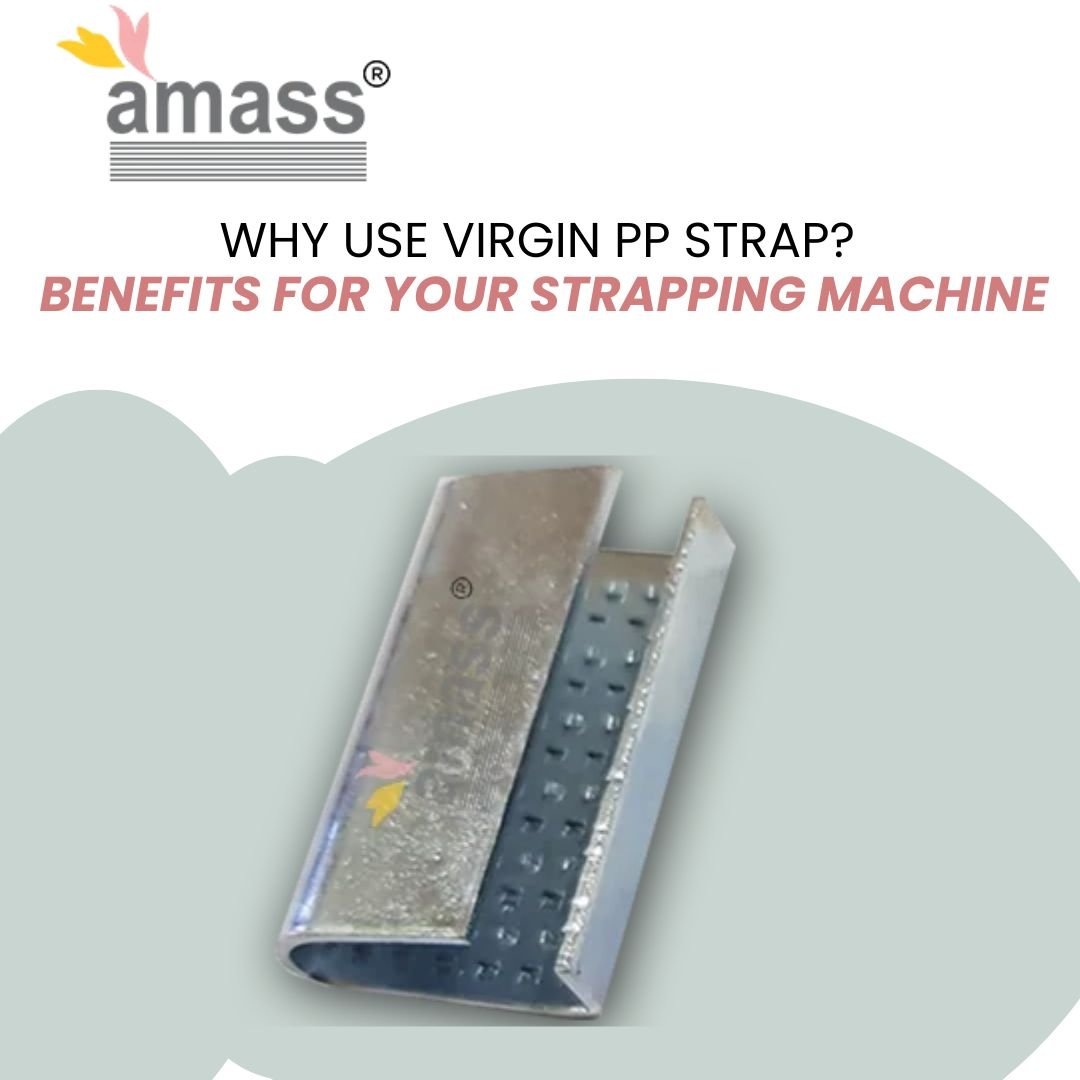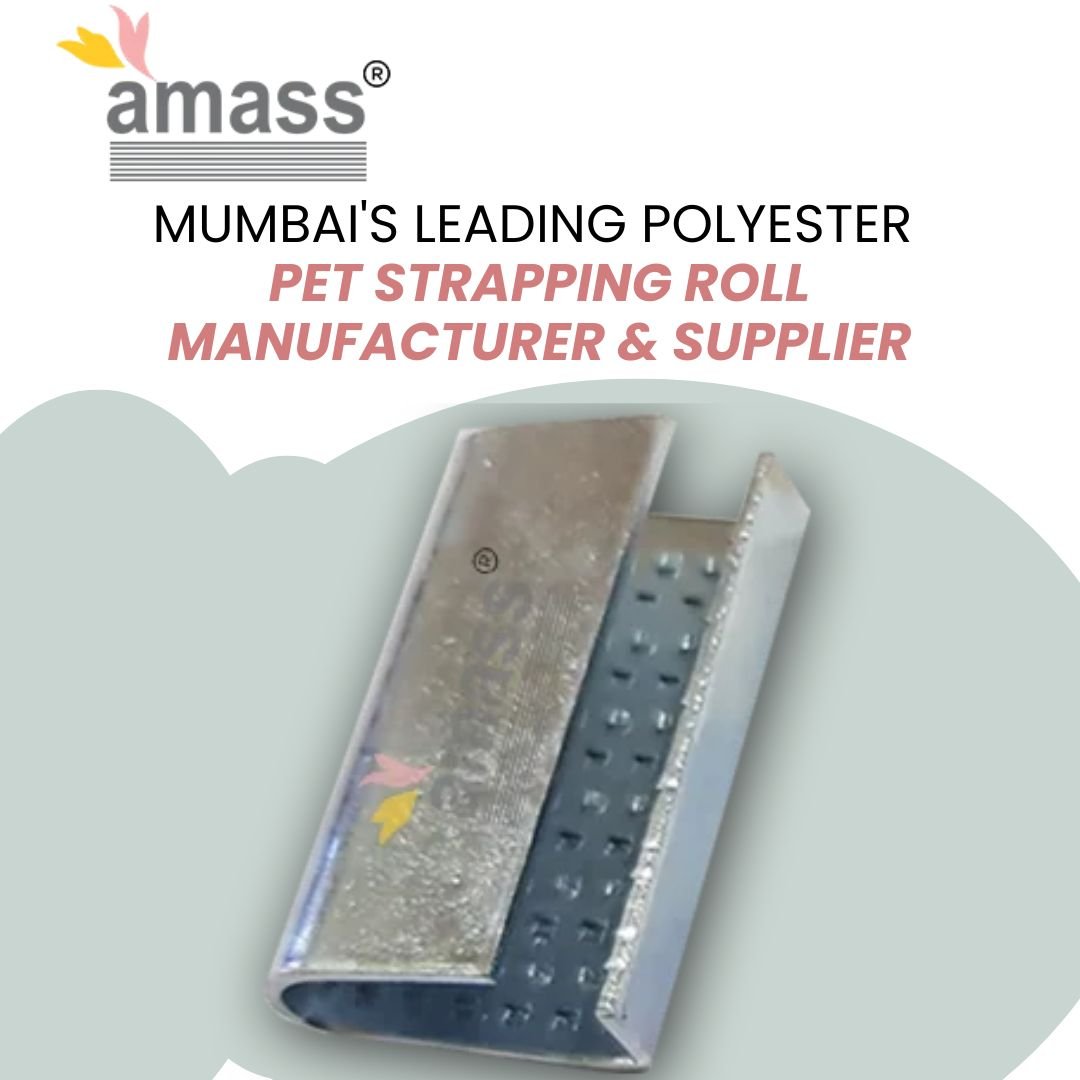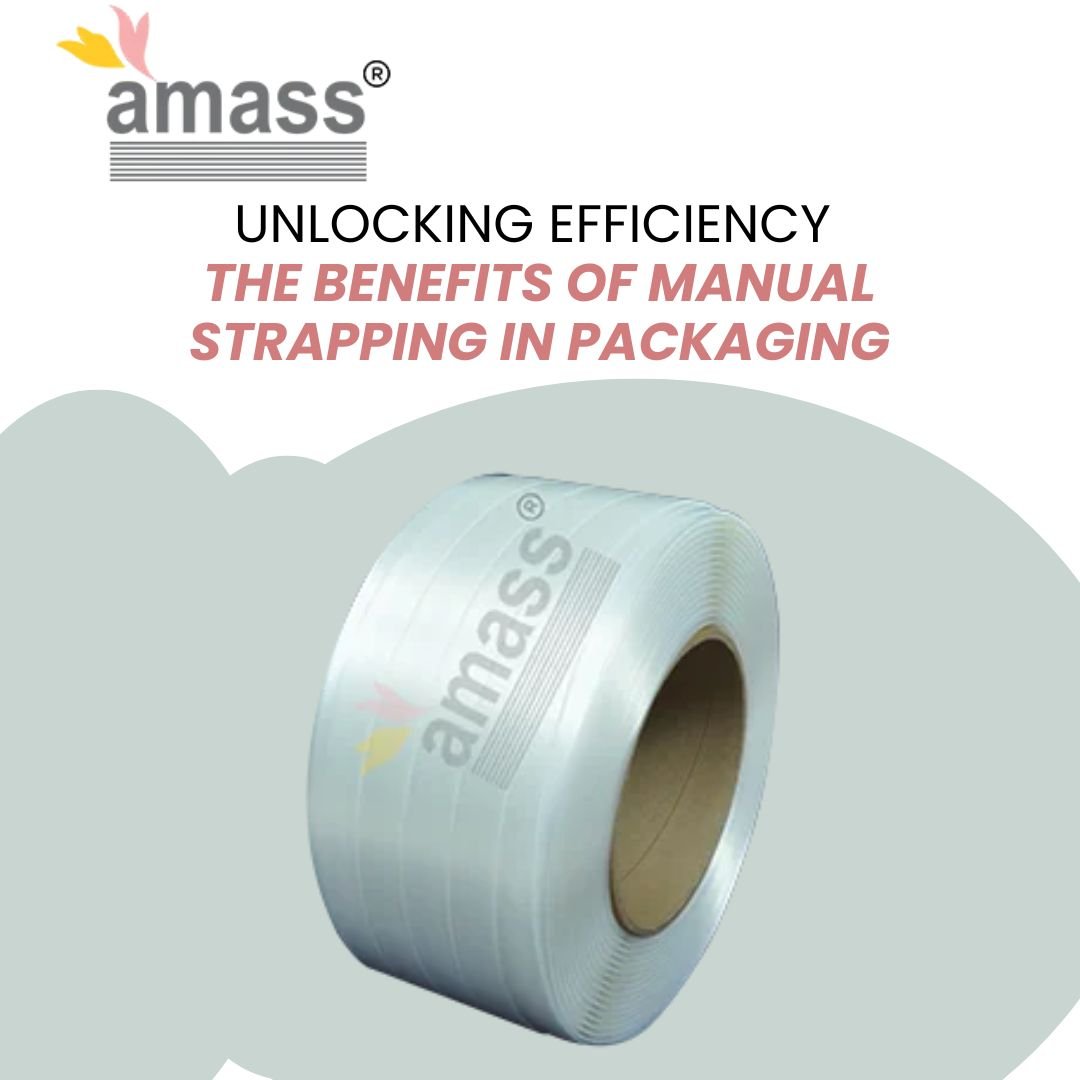3 Types of Strapping Material and Their Uses

Top Tensioner and Sealer Tools Supplier
July 9, 2025
Choosing the Perfect Plastic Strapping Tool for Your Needs
July 12, 2025The global strapping materials market size reached USD 7.4 billion in 2024. Looking forward, IMARC Group expects the market to reach USD 11.6 billion by 2033, exhibiting a growth rate (CAGR) of 4.86% during 2025-2033. Yet strapping materials remain invisible to most—until something goes catastrophically wrong during transit.
Here’s what the logistics industry learned the hard way: Polypropylene (PP) dominated the market and accounted for the largest revenue share of 47.5% in 2024, attributed to its lightweight properties and cost-effectiveness. But dominance by volume doesn’t tell the whole story. The real question isn’t what’s most popular—it’s what performs when failure isn’t an option.
Amass Strap has been quietly engineering solutions for industries where “good enough” gets you sued and where the difference between materials can mean the difference between profit and catastrophic loss. The data reveals why three materials rule this space — and why your choice matters more than you think.
Polypropylene (PP) Strapping: The Lightweight Champion with Hidden Limits
PP strapping owns nearly half the market for one reason: it works where most people think it should. For stable, lightweight shipments, PP works just fine. The economics are seductive—lowest cost, easiest application, available in every color imaginable.
But here’s where most companies miscalculate: Polypropylene loses tension faster than polyester. That seemingly minor detail becomes mission-critical when your shipment sits in a warehouse for months, or when temperature fluctuations cause packages to expand and contract.
The PP Sweet Spot:
- Light to medium-duty applications in retail and food & beverage
- Cost-effective for high-volume, short-duration shipping
- Flexible enough for irregularly shaped loads
- Available in various sizes and colors for coding systems
The PP Trap: Companies often choose PP for applications just beyond its comfort zone, then wonder why tension fails during extended storage or temperature changes.
Amass Strap’s PP Advantage: Our PP strapping delivers superior tension retention through advanced polymer formulation, reducing elongation by up to 15% compared to standard offerings. When you’re competing on razor-thin margins, that difference translates to fewer callbacks and warranty claims.
Polyester (PET) Strapping: The Durable Alternative That Outperforms Steel
Here’s a stat that surprises logistics veterans: Pound for pound, PET is stronger than steel, so a roll of PET strapping will be lighter than a roll of steel strapping with the same break strength. Even more striking: PET or polyester strapping is almost always a cheaper alternative to steel, resulting in cost savings that can be as much as 50%.
Yet PET’s real advantage isn’t just strength-to-weight ratio—it’s shock absorption. Polyester has a higher tensile strength than steel, with high elongation and a high level of elasticity. This type of strapping is able to absorb shocks and impacts during transportation and bundling better than polypropylene.
The PET Advantage:
- High tensile strength with superior shock-absorbing capabilities
- UV resistant—performs equally well indoors and outdoors
- Maintains tension better than PP over extended periods
- Weather-resistant and won’t rust, making them suitable for long-term storage applications
The PET Investment: Higher upfront cost than PP, but ROI becomes clear when you factor in reduced damage claims and extended storage capability.
Amass Strap’s PET Edge: Our PET strapping features a proprietary surface treatment that reduces abrasion by 40% compared to standard PET. In high-friction environments like automated warehouses, this translates to fewer strap breaks and reduced downtime.
Steel Strapping: The Heavy-Duty Solution for Extreme Conditions
Steel Strapping Market size was valued at $291.32 Mn in 2024 and is projected to reach $459.09 Mn by 2031, growing at a CAGR of 5.85% from 2024-2031. This growth defies predictions that plastic alternatives would eliminate steel entirely.
Why? Because some applications demand what only steel delivers: zero elongation under extreme loads, resistance to cutting and abrasion, and the ability to maintain tension even when securing sharp-edged materials that would slice through plastic alternatives.
Steel’s Unmatched Territory:
- Construction materials, steel beams, and lumber
- Heavy machinery and equipment shipping
- Applications requiring ultimate strength with minimal elongation
- Environments where sharp edges or abrasive surfaces are present
Steel’s Trade-offs: Requires specialized tools, heavier than alternatives, and demands careful handling to prevent injury.
Amass Strap’s Steel Innovation: Our steel strapping combines high tensile strength with optimized thickness distribution, delivering 20% better load retention than standard steel options while maintaining competitive pricing.
The Decision Matrix: Choosing Your Strapping Strategy
Load Weight & Type: PP handles up to 1,500 lbs; PET manages 2,000+ lbs with better shock absorption; steel secures unlimited weight with zero compromise.
Environmental Exposure: Polyester is more UV- and moisture-resistant, making it more durable in challenging environments. Steel weathers everything but adds weight and rust risk.
Budget Reality: PP wins on price, PET delivers better value per performance unit, steel costs more upfront but eliminates catastrophic failure risk.
Timeline Factor: Polyester strapping is best used for rigid loads and helps to absorb impact during transit. It’s also a better alternative when you need higher initial tension to contain loads when compared to PP strapping.
Safety First: The Hidden Costs of Poor Strapping Choices
The data doesn’t capture workplace injuries from strap failures, but insurance companies do. Poor strapping choices don’t just risk cargo—they risk people. Steel requires proper training and tools; PET offers strength without sharp edges; PP fails gradually, not catastrophically.
Amass Strap’s Safety Commitment: We provide comprehensive training resources and safety protocols, ensuring your team understands not just how to apply strapping, but how to recognize when conditions demand a different material choice.
The Amass Strap Advantage: Engineering Performance Into Every Application
Why choose Amass Strap in a crowded market? Because we engineer solutions, not just products. Our consultation process identifies the precise strapping material for your specific application, considering factors most suppliers ignore: storage duration, temperature fluctuations, handling equipment, and long-term cost implications.
Our Complete Solution:
- Premium PP strapping with superior tension retention
- Advanced PET strapping with enhanced abrasion resistance
- High-performance steel strapping optimized for extreme loads
- Comprehensive tool selection matched to your materials
- Training and consultation services that prevent costly mistakes
Conclusion: The Strategic Choice
The strapping materials market size is poised to witness steady growth between 2024 and 2032, driven by the fast-growing e-commerce and logistics operations across the globe. As this market expands, the gap between informed material selection and guessing widens.
Your strapping choice isn’t just about securing cargo—it’s about securing your reputation, your margins, and your peace of mind. The companies that understand this difference don’t just survive supply chain disruptions; they thrive because they’ve engineered failure out of the equation.
Ready to engineer your strapping solution? Contact Amass Strap for a consultation that goes beyond product selection to strategic advantage. Because in logistics, the details others overlook become your competitive edge.




